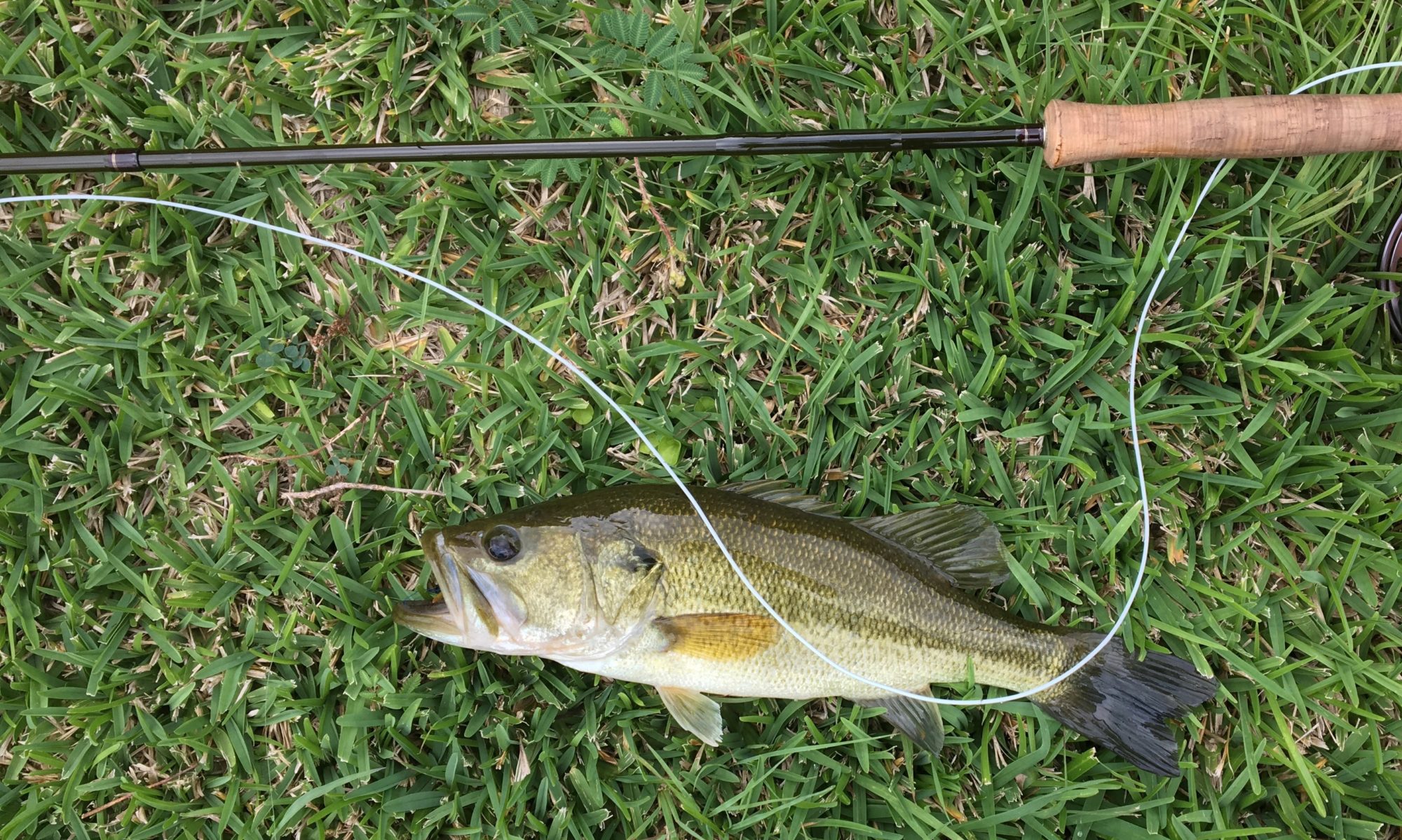The largest trout I’ve caught was in Arkansas, in the Ozarks on the Little Red River in the northwest part of the state, on a root-beer colored streamer called a meat whistle. Whoever named that fly wasn’t subtle, but neither is the fly.
I caught that trout three years ago, and I considered including it in our list and skipping another trip to Arkansas. For some reason that seemed wrong–if I included Arkansas where would it end? North Carolina 20 years back? That trip to Wyoming 30 years’ ago? So a month ago we booked a weekend trip back to the Little Red on April 4. Then came Coronavirus.

The Little Red is a tributary to the more-famous White River, and like the White it’s known for its trout. It once held the world all-tackle record for brown trout, over 40 pounds. Since the 1980s, the browns are always wild, never stocked. It’s a pretty river, to my eye prettier than the White, and we fished it from a flat-bottomed, jet-motored sled-boat Nothing says Arkansas like a flat-bottomed, jet-motored sled-boat.
Parts of the Little Red are lined with vacation homes, but its banks are heavily wooded and the houses don’t intrude except when your fly gets hung on a dock. There’s always something for flies to get hung on. The Little Red and the White are tailwaters, and while trout aren’t native to Arkansas, water is discharged from the dams at 40-50 degrees, cold enough to dissuade the native black bass and catfish. Trout thrive.
My great-grandfather, Henry Louis Thomas, was born July 17, 1850, in Ozan, Arkansas, two counties northwest of the corner where Texas and Arkansas meet. His father, William Louis Thomas, was born I-don’t-know-where and died in Ozan in 1849. He was 38. Because of problems with a stepfather, as boys Henry and his older brother, James Jasper, left Arkansas on a donkey and came to Bowie County near Texarkana. It seems pretty desperate, but I suspect these were pretty desperate people.

All William Louis left behind was a marriage license, a denied dram shop license application, and two sons. I doubt that my great grandfather Henry could read, or at least that he could read much, and wonder what it must have been like for Amanda Adeline to be widowed and poor and pregnant in Arkansas in 1850. She was born in 1834, two years before statehood, in Argenta, Arkansas, now North Little Rock. She was 16 when Henry was born. She died in 1864 in Bois d’Arc. She was 30.
Bois d’Arc, by the way, is pronounced bow dark.

When I was a boy, my grandmother’s house was a few blocks south, the Texas side, of State Line Boulevard in Texarkana. The Texas side was dry, meaning that alcohol sales were banned. The Arkansas side was wet, evidencing a wildness that I suspected was typical of the other side of the street. The federal post office sits on the line, part in Texas, part in Arkansas. Near the post office is a peculiarly elaborate Confederate memorial dedicated in part to the women of the Confederacy, or at least the white women of the Confederacy.
“O great Confederate mothers, we would paint your names on monuments, that men may read them as the years go by and tribute pay to you, who bore and nurtured hero-sons and gave them solace on that darkest day, when they came home, with broken swords and guns!”
I don’t think there’s a corresponding monument for Southern women who weren’t Confederate mothers.
I doubt my family history is uncommon. I expect that lots of early immigrants to Texas came through Arkansas: white, black, or brown they could only have come through Arkansas, Louisiana, Mexico, or the Gulf. Maybe there were a rare few souls from New Mexico. My family history is probably only nuanced by the time some of my ancestors actually stayed in Arkansas.

Since Thursday I’m home, self-isolating. A colleague in Dallas may have the virus, and there is a feeling of inevitability about the spread of Covid-19. Fifteen days ago I went to a breakfast for the Harris County Community College system with about 500 others, and after the breakfast I stood in the foyer for an hour discussing local politics with a friend, the wife of a Harris County commissioner, and greeted passers-by. That evening I stood with our mayor in a crowded room for a reception for Cory Booker, and then left for a dinner at a Chinese restaurant with about half of the Harris County state representatives–the purpose was to advertise the plight of Asian Town restaurants. At all those events we were still shaking hands, hugging, standing closer than six feet.
Now of course our mayor has ordered all Houston dining room service closed, and I’m at home. Everything’s canceled. Everything’s ground to a halt.
I haven’t canceled our trip to Arkansas yet, and haven’t discussed canceling with Kris. I should go ahead and cancel, I’m pretty sure we won’t be going, but part of me wants to stock the van with groceries and sleeping bags and drive, to see deserted highways, to make Henry’s trip on that donkey in reverse. We wouldn’t have to interact with anyone except the fishing guide, and that would be outdoors. We could sleep in the van in WalMart parking lots, right? There are WalMarts in Arkansas, right? It would be a small rebellion against our current paralysis. At some point life must go on, or maybe not.
I need to spend a day outside. And I’ve only been home since Thursday.


